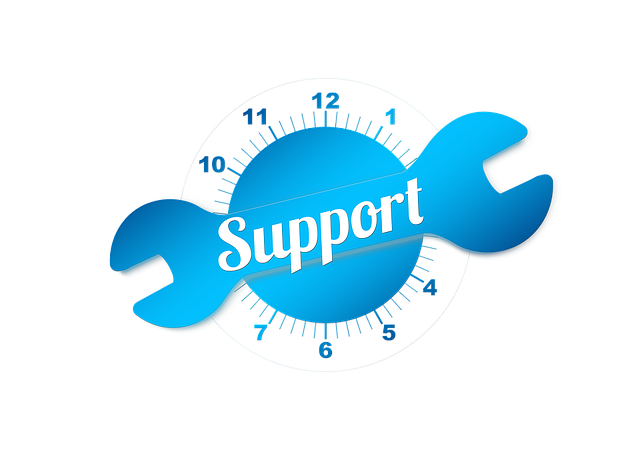In Oregon, individuals facing family, child, or financial matters have access to diverse legal aid resources, with organizations like the Oregon Legal Aid Services Corporation providing affordable and accessible legal services to low-income residents. These programs cater to various needs, fund through grants, donations, and state support, offering free or low-cost representation for civil and criminal cases. Specializing in areas like family law, housing, consumer issues, and immigration, these organizations ensure equitable access to legal support for all, regardless of financial status, by offering assistance with child support, spousal maintenance, and custody disputes through pro bono programs and specialized practices.
“In Oregon, navigating support issues can be complex, but understanding your legal rights and options is crucial. This comprehensive guide delves into the intricacies of legal support access within the state. We explore who is entitled to aid, from low-income individuals to those facing domestic violence. Our article details various legal services available and provides a step-by-step process for accessing them. Furthermore, we address barriers and advocate for expanded accessibility, ensuring that all Oregonians can secure the legal guidance they need.”
- Understanding Legal Support Access in Oregon: An Overview
- Who is Entitled to Legal Assistance? Eligibility Criteria
- Types of Legal Services Available for Support Issues
- Navigating the Process: How to Access Legal Aid in Oregon
- Overcoming Barriers: Expanding Legal Support Access for All
Understanding Legal Support Access in Oregon: An Overview

In Oregon, understanding legal support access is crucial for individuals facing various support issues. The state offers a range of resources to assist those who require help navigating complex legal systems, especially when dealing with family, child, or financial matters. Legal aid organizations play a vital role in providing accessible and affordable legal services to low-income Oregonians. These organizations ensure that everyone has equal access to justice by offering free or low-cost representation.
Oregon’s legal support system is designed to cater to diverse needs, from civil cases to criminal proceedings. The Oregon Legal Aid Services Corporation, for instance, provides a comprehensive range of services, including family law, housing, consumer protection, and immigration assistance. This accessibility ensures that individuals can access the legal guidance they need to resolve their support issues effectively.
Who is Entitled to Legal Assistance? Eligibility Criteria

In Oregon, legal support access is available for individuals who meet specific eligibility criteria. Those entitled to this assistance include low-income persons facing civil or criminal legal issues that may affect their basic human needs and rights. Eligibility is based on a combination of financial need and the merit of the case. Income levels are considered in conjunction with other factors such as family size, disability, age, and citizenship status to determine if an individual qualifies for free legal services.
Legal assistance programs in Oregon are funded through various sources, including federal grants, private donations, and state support. These programs employ a network of lawyers, paralegals, and community advocates who work pro bono—for no charge—to ensure that everyone has access to justice. Legal aid organizations often specialize in specific areas of law, such as family, housing, consumer, or immigration issues, providing tailored assistance to those who need it most.
Types of Legal Services Available for Support Issues

In Oregon, individuals facing support issues can access a range of legal services designed to help them navigate complex laws and protect their rights. These services include free or low-cost legal aid from organizations dedicated to providing legal support to those who cannot afford an attorney. Legal aid clinics offer advice, representation, and advocacy on matters such as child support, spousal maintenance, and custody disputes.
Additionally, Oregon’s legal community has specialized practices focused on family law, which includes services related to support issues. These attorneys can provide comprehensive guidance, from drafting legal documents to representing clients in court. There are also pro bono programs that match qualified individuals with lawyers who volunteer their time to offer legal assistance. This ensures that everyone, regardless of financial status, has access to legal support when dealing with support-related matters.
Navigating the Process: How to Access Legal Aid in Oregon

Navigating the legal system can be a daunting task, especially when dealing with support issues. In Oregon, residents have access to various resources and legal aid organizations dedicated to assisting those in need. The first step is identifying which type of legal support best suits your situation. Oregon offers free legal services through its Legal Aid Services program, covering a range of civil legal matters, including family law, housing, consumer, and debt-related issues.
To access these services, individuals can contact the local Legal Aid office, provide their income information, and schedule a consultation. The process is designed to be accessible, ensuring those facing support challenges receive the necessary guidance. With dedicated legal professionals, Oregon’s Legal Aid Services aim to empower individuals to understand their rights and make informed decisions regarding their legal matters.
Overcoming Barriers: Expanding Legal Support Access for All

In Oregon, ensuring equal access to legal support is a key focus for addressing various community issues. Many barriers exist that hinder individuals from obtaining the legal assistance they need, creating disparities across different segments of society. These include financial constraints, language and cultural barriers, and limited awareness of available resources. To overcome these obstacles, several initiatives have been launched to expand legal support access.
Non-profit organizations, legal aid societies, and pro bono programs play a pivotal role in providing free or low-cost legal services to those who cannot afford them. By leveraging community partnerships and utilizing technology for remote assistance, legal support becomes more accessible. Educational outreach programs also target under-served populations, raising awareness about their rights and available resources, thereby empowering individuals to take proactive measures regarding their legal matters.














